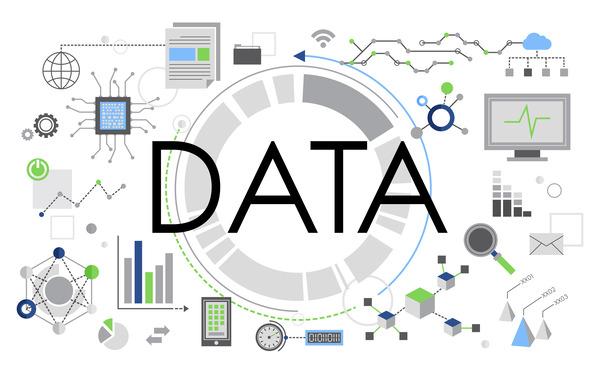Notifications
7 minutes, 26 seconds
-30 Views 0 Comments 0 Likes 0 Reviews

Introducing Artificial Intelligence (AI) in industries has completely transformed the way it operates. Companies are in a position now to leverage data for making smart decisions, automate the process and deliver personalized customer experiences. The growth of AI has definitely brought data, the critical element, into the limelight. For AI systems to function effectively, they require large volumes of clean, structured, and easily accessible data, making this a critical focus of data engineering services. By providing the infrastructure, and necessary tools to collect, process, and manage vast datasets, these services can power up the AI revolution in unimaginable ways.
Why do you Need Scalable Data Engineering?
Data is a critical element, and mostly AI systems rely on it to train algorithms, refine decision making processes, and make predictions. To make it accessible for machine learning models and to analyze the data, it should be collected from multiple sources and processed. In today’s data-driven world, the volume of data is staggering. Managing, storing, and processing such large amounts of data requires a robust and scalable data infrastructure.
Here are why scalable data engineering services come to the forefront to handle the immense volumes of data, provide storage capacity, computation, and manage data flow. These services ensure data pipelines can grow and evolve in proportion to the increasing demand for AI applications. Without the scalable systems in place, AI’s potential would be limited severely, as the data required for training algorithms would be too fragmented, inaccessible, or outdated.
Scalable Data Pipelines, Build Right
The most important aspect of data engineering services is the creation of data pipelines, systems that collect, clean, and prepare data that are used by AI systems. A scalable data engineering service builds automated pipelines that can continuously ingest data, ensuring that AI models are always working with the latest and most relevant information. These pipelines are designed to handle not just structured data, but also unstructured data, such as text, images, and videos, which are becoming increasingly important for AI applications.
The stages involved in Data Pipelines:
Collection of Data: Gathering data from multiple sources, such as IoT devices, social media, and customer interactions.
Data Cleaning and Transformation: Removing inaccuracies and transforming the data into a format that is useful for AI analysis.
Data Storage: Storing data in a format that is optimized for querying and analysis.
Data Serving: Making the data available for consumption by AI models.
The ability to scale these pipelines means that data volumes increase, and the infrastructure can be expanded to handle the load without compromising performance or accuracy. This is particularly important for AI, where high-quality, consistent data is a prerequisite for model success.
Data Engineering Services: From Data to Action, in Real-time
AI and machine learning models need real-time data to make instantaneous predictions and adapt to changing environments. Scalable data engineering services ensure that data is not only available but also processed and served in real time. This is especially important in industries such as finance, healthcare, and retail, where timely decision-making is critical.
For instance, in finance, AI models can analyze real-time transaction data to detect fraud patterns. In healthcare, real-time data from patient monitoring systems can power predictive analytics for patient outcomes. Scalable data engineering enables these real-time data streams to be processed efficiently, ensuring that AI systems can operate at their highest potential.
Cost Efficiency and Flexibility
Building and maintaining data infrastructure can be resource intensive. Traditional on-premises systems can be costly to manage and scale. However, cloud-based scalable data engineering services offer significant cost advantages. These services provide flexibility, allowing businesses to pay only for the resources they need. As data volume increases, businesses can easily scale up their infrastructure without upfront investments in hardware, reducing capital expenditures and operational complexity.
Cloud providers like AWS, Google Cloud, and Microsoft Azure have become leaders in this space, offering a variety of tools and services specifically designed to support scalable data engineering. These platforms enable businesses to implement machine learning models more quickly and cost-effectively, with minimal infrastructure overhead.
Data Governance and Security
As data becomes an integral part of AI systems, ensuring the quality, security, and compliance of this data is paramount. Scalable data engineering services not only handle data volume but also provide mechanisms for maintaining data integrity and security. With increasingly strict data privacy regulations (such as GDPR and CCPA), businesses need to implement strong governance frameworks to protect sensitive information.
Scalable data engineering services come with built-in security features, including encryption, access control, and audit logs, ensuring that data is protected at every stage of the pipeline. These services also allow businesses to monitor and track the movement of data across systems, providing full transparency and helping them stay compliant with regulatory requirements.
Final Thought
Scalable data engineering services are the backbone of the AI revolution. By providing the necessary infrastructure to handle vast quantities of data and ensuring real-time access, these services enable AI systems to function effectively and efficiently. As the demand for AI-powered solutions continues to grow, scalable data engineering will remain crucial in empowering businesses to unlock the full potential of their data, making smarter decisions and driving innovation across industries.

